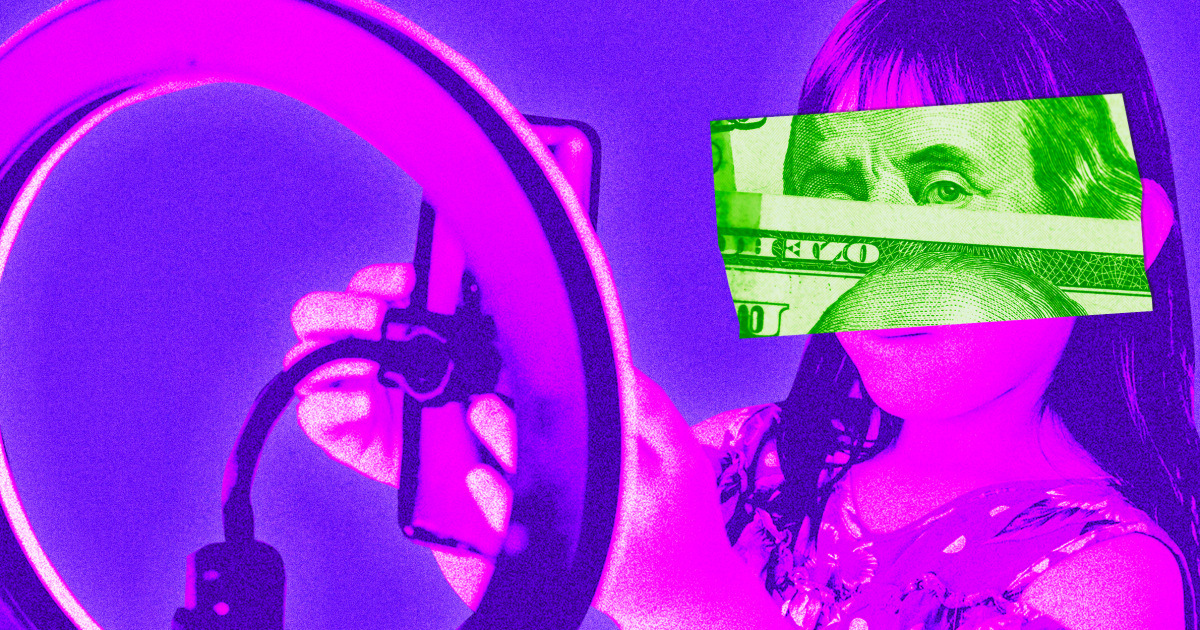
After Illinois passed the country’s first law protecting child influencers last week, a feeling of optimism swept over Sarah Adams.
For years, she and other advocates against child exploitation have warned about the dangers of sharing children’s lives on social media for profit. The law would ensure financial compensation for minors, defined as children under 16 years old, who are featured in vlogs, or video blogs.
While Adams is not based in the U.S., she and other activists who spoke with NBC News said they are excited by the news. They believe the legislation marks a precedent that could encourage similar action in states across the country.
“There is a lot of excitement that these conversations are not only being had, but that legislation is being enacted to protect the income that these kids are generating,” said Adams, a 38-year-old mother of two from Vancouver who calls out child exploitation online with her platform of more than 270,000 TikTok followers. “Because we need to be realistic: It’s the children that are generating the income for these families.”
Ethical concerns around “sharenting” have come under increasing scrutiny in recent years as family vloggers and parenting influencers continue to build massive followings online. Advocates have called out the harms of invading children’s privacy and compromising their digital safety for clout or monetary gain, especially without informed consent.
Illinois’ new law, set to take effect next July, mirrors California’s Coogan Act, which was passed in 1939 to protect the earnings of child performers and has inspired similar laws in other states. None of these laws had addressed children who perform on the internet, nor does the national Fair Labor Standards Act.
Now, content creators in Illinois must set aside a portion of any earnings from videos including the “likeness, name, or photograph of the minor” in a trust for them to access upon adulthood, according to the law. The percentage of earnings allocated is based on how heavily that minor is featured in the content — including in stories told about them without necessarily showing their image.
Creators who fail to meet this criteria can be sued for damages, but the bill does not provide a government enforcement mechanism, meaning compliance and legal action is left up to individual families.
Jess Maddox, an assistant professor of digital media technology at the University of Alabama, said it’s important for child influencers to be taken seriously as child workers who need to be financially and legally protected.
“It might be kind of niche right now, but now with the Illinois law, I think it’s going to be much more of a national and public conversation,” Maddox, who specializes in social media and influencers, said. “I think any kind of resistance or confusion about it might harken back to the belief that social media content creation and influencing are not legitimate careers.”
Since last year, Maddox said, she’s seen an organic groundswell in former child influencers speaking out about having had their lives shared online without their consent. As their voices grew louder, and as more people on social media began making point-of-view jokes about being the child of a family vlogger, greater rumblings about exploitative child influencer practices began emerging among the general public.
It made the time ripe for legislative action, according to Maddox.
Student action also helped bring the issue of child influencers to lawmakers’ attention.
High school student Shreya Nallamothu, whom state Sen. David Koehler credits with coming up with the idea behind the legislation, said she’s pleasantly surprised at how quickly the bill moved through the Legislature since it was introduced this February.
In the future, she said she hopes to see more laws around the privacy and mental health aspects of child influencer work.
The Illinois law focuses on entitling child influencers to a percentage of earnings. It doesn’t include protections for their choice to stay off the internet or to remove previous content, though the original version of the bill had included a provision enabling former child influencers to request that platforms permanently delete monetized content posted of them as a minor — often referred to as the right to be forgotten.
“I know that it’s not 100% perfect, and I wasn’t expecting that going into it,” Nallamothu, 16, said. “But I didn’t want an obsession with it being perfect to stop real progress being made, because this is a first step and I’m just excited to see child influencing being legitimized and on the books.”
Though Illinois was the first to officially enshrine child influencer protections into law, similar legislation has been in the works in Washington state, where 19-year-old University of Washington student Chris McCarty has been lobbying for it.
McCarty, the founder of Quit Clicking Kids, a site advocating protections for kids who are monetized on social media, said in an email that he’s optimistic about what the Illinois law will mean for similar legislation nationwide.
“I believe that the public pressure to address this issue will only increase as more children reach adulthood and start sharing their story,” he said.
Source: | This article originally belongs to Nbcnews.com









